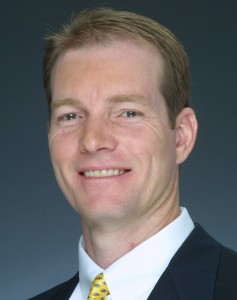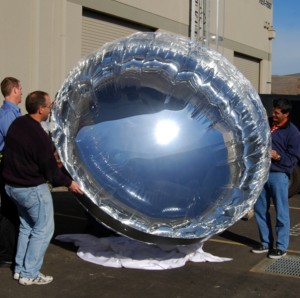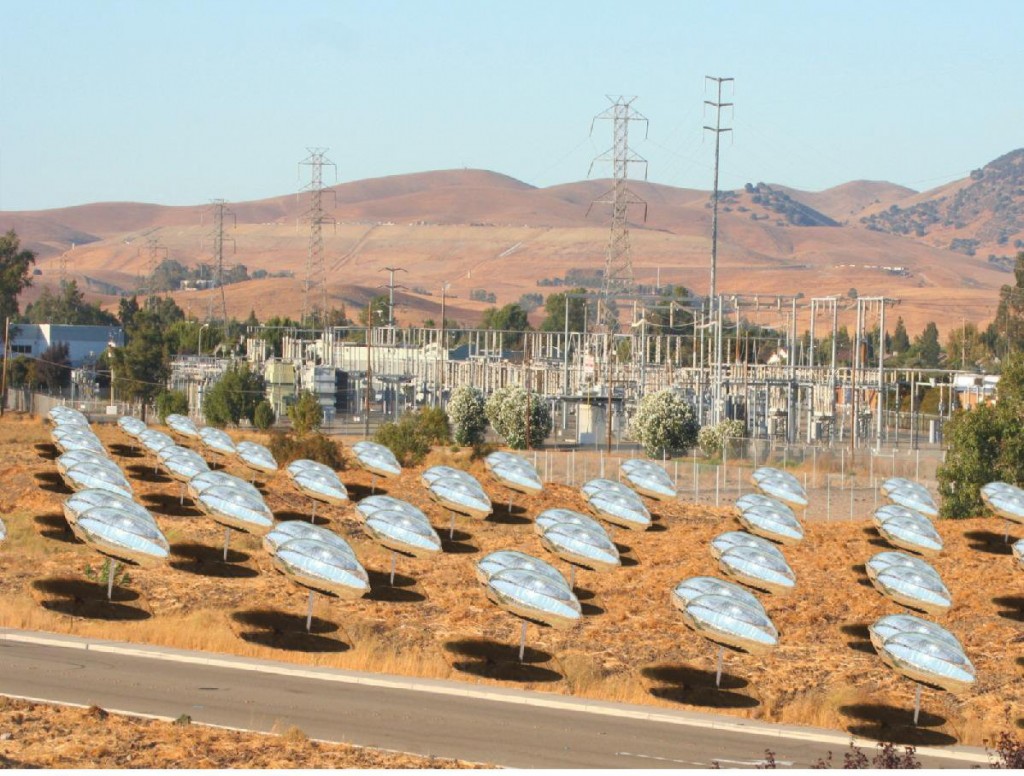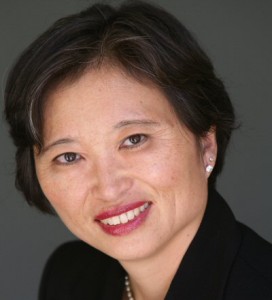
Feb 26, 2009 | Celebrities, Fresh Interviews, Green World, Transcripts
by Alison van Diggelen, host of Fresh Dialogues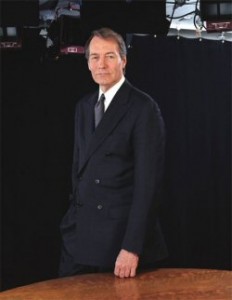
Today on Fresh Dialogues we talk to Charlie Rose, the acclaimed host of the Charlie Rose Show on PBS. His show has been described as the last refuge of intelligent conversation on television. I interviewed him after his Celebrity Forum lecture at the Flint Center in Silicon Valley on February 26, 2009. We talk about ENERGY POLICY, HIS INSATIABLE CURIOSITY AND WHY HE HAS A “GREAT AND GLORIOUS LIFE.”
Alison: Charlie, thank you for joining me today on Fresh Dialogues. You spoke highly last night about Silicon Valley and you’ve interviewed a lot of Silicon Valley luminaries. Can you talk about what – in your opinion – makes Silicon Valley so special and what these luminaries – like Sergey Brin and Larry Page – have in common?
CR: Certainly they have in common curiosity. Certainly those two have in common great intelligence. And they all have in common – I think – a sense of wanting to explore the unknown. The economy today is a place of uncharted waters, but also the world they live in. I interviewed today the President of Stanford University, John Hennessy, the cofounder of Twitter, Evan Williams; Reid Hoffman from LinkedIn and a friend of mine who is an entrepreneur from Los Angeles. There is a passion about the future and they bring to a consideration of the future enormous tools which they have learned, which include the computer and other things.
Alison: And does it give you optimism, being in Silicon Valley, that we have a future, that we’re going to come out of this (recession)?
CR: Yes it does. I think technology is part of the solution and so does Barack Obama – by the way. Not because he told me that, but because you read what he said. He said it in a speech to Congress, he said it on Inaugural Day and I suspect he believes it and will continue to say it: science and technology are part of the key to unlocking the future.
Alison: You’ve interviewed Nobel laureates, business leaders, world leaders…have you ever been tempted to influence government policy, business strategy or even enter the venture capital world, like Al Gore has done, because you must have so much wisdom in so many areas?
CR: I’ll take your question only to the last point about so much wisdom in so many areas. I have never been…I invest my own money in a whole range of different kinds of things, and when I say that I don’t want it to sound large, because it’s not. My role is as a journalist. I’m not in the role of being an advocate for anything. My goal is to provide the kind of analysis that helps people make a decision to approach an issue. If I can do that, then I’m in good shape.
Alison: But you’ve never been tempted to voice an opinion? If Tom Friedman or Obama were to say…
CR: Tom Friedman is very different. Tom Friedman writes a column…
Alison: Sure
CR: He’s not a reporter for the New York Times, although he may report within his column. But he writes Tom Friedman’s opinion…
Alison: But what do you say when Tom asks for your opinion… even if it’s off camera?
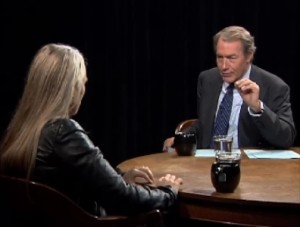 CR: Oh, it is always off camera. Tom and I have conversations about how we see the world and we share that idea. My interest in that conversation is because I’m a man of questions and curiosity and what I’m always doing is testing how I see the world against new ideas, new people, in the interest of somehow coming to…greater understanding. Tom Friedman has been on our program more than anyone else. His range is extraordinary, certainly from the Middle East to foreign policy in general and then technology and the whole question of alternative energy sources, our dependence on fossil fuel, and his new book, Hot, Flat and Crowded is in a sense I think, a call for a new energy policy. I mean the country – and this is not just the previous administration, it may go back for several administrations – has not had a serious energy policy.
CR: Oh, it is always off camera. Tom and I have conversations about how we see the world and we share that idea. My interest in that conversation is because I’m a man of questions and curiosity and what I’m always doing is testing how I see the world against new ideas, new people, in the interest of somehow coming to…greater understanding. Tom Friedman has been on our program more than anyone else. His range is extraordinary, certainly from the Middle East to foreign policy in general and then technology and the whole question of alternative energy sources, our dependence on fossil fuel, and his new book, Hot, Flat and Crowded is in a sense I think, a call for a new energy policy. I mean the country – and this is not just the previous administration, it may go back for several administrations – has not had a serious energy policy.
Alison: And what do you think of Tom’s premise that America has lost its groove and will get its groove back by embracing the energy technology sector and green tech?
CR: He believes, what Tom believes is that… “A” I essentially agree with his instinct and analysis about America having lost its groove, on the other hand, I think it can do it in many ways, of which taking the leadership in terms of alternative energy sources is only one way. But there is an argument to be made that the United States in a sense can reassert its leadership in the world by engaging the energy question.
Alison: You’ve said that the public has not persuaded the government that we’re prepared to make sacrifices in order to be green. What sacrifices do you think Americans need to make?
CR: No. I don’t think…it’s not the question of whether the public has not. The government has not persuaded the public that this is in the essential and long term interest of the United States.
Alison: Do you think Obama can do that?
CR: I think he has the core skills to do it. I think it takes a focus and I think it takes a passion and he clearly has signalled. You know, as we speak, it’s day 36 of the Obama administration and he’s clearly signalled that three things are at the forefront of his domestic concern: energy, health care and education. So it’s on his agenda. Therefore, can he take that kind of priority and move it into policy and achievement is a question that only time will tell.
Alison: Talking about curiosity, you’re known for your insatiable curiosity. Did that curiosity – going back to the early days: Charles Peete Rose Jr, as a young boy…did that curiosity ever get you in trouble as a child?
CR: Constantly
Alison: Can you tell us about that?
CR: No…oh God no. I constantly wanted to know and experience …everything. I was never intrigued by drugs. I always liked alcohol for example, but I was never intrigued by drugs and so I never had cocaine in my life, or a whole range of…none of the heroin. Never had it. It wasn’t because I deserve any medal for that…I don’t – I was never tempted to do it. I asked Sean Penn once why he never did drugs and he said because I liked alcohol. I mean, I never did drugs either and was never tempted to do it, and perhaps the reason was not so much I loved alcohol but because I was simply in love with the idea of doing, experiencing, feeling, traveling and I always found out that the experience itself – of doing those things – was enough for me.
Alison: And where did that curiosity come from Charlie?
CR: It’s two things. It may be a bit genetic but I don’t understand that because my parents had no relationship to what I do. It may have come from the roles that I played. Malcolm Gladwell has a new book called Outliers
Alison: Yes
CR: Which is a whole notion that you’re influence by the circumstances that put you in a certain place. My circumstances put me in a country store which my father owned but my mother ran and so therefore my role was to be able to engage people. Curiosity was a great tool to engage.
Alison: So you actually served in the store?
CR: Serve would not be the word we would use. Work would be a better word.
Alison: OK
CR: It wasn’t service. I mean I didn’t volunteer. My father said this is what you’re going to do. I was an only child, so there was no escape.
Alison: Tell me, you also said you’re curious about what makes people tick, what they dream about. Mr. Rose – what is your dream?
CR: My dream most of all is to engage life and to have the experience of discovery. I think you do that better with a woman in your life and I don’t have that at this time. But I also want to create, in a very specific way, a true global conversation.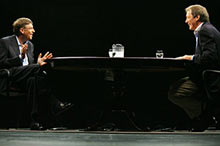
Alison: And how do you intend to do that? Or are you doing that already?
CR: I am doing that already, but I can do that in a much more, sort of, ordered way.
Alison: Are you planning to use the web?
CR: I am using the web – that’s a given right now.
Alison: But…further, into China etc.?
CR: Sure sure. Not only that, but over the air and on cable broadcast. It is my curiosity about those things that drives me forward. I mean, this has been a great day – I learned more about Twitter today because I had the CEO of Twitter on the show today; I learned more about LinkedIn because I had the CEO and cofounder of LinkedIn on. I have a greater sense of where Stanford stands today because of my experience with John Hennessy, the President of Stanford. I mean, all of that feeds my curiosity and it takes me to another place.
Alison: There are only so many hours in the day. How do you prepare for a day like today? You have to be the expert…in Twitter, the expert in…
CR: No, no, it’s not that. I don’t have to be the expert. That, you have to understand, is not what I have to be. I will never hold myself out to be the expert. My role is to be, in a sense, both ignite, inspire and create a platform for engagement by experts, it’s not to be an expert.
Alison: But you have to know enough about the subject to ask the right questions?
CR: Knowing enough and being an expert is a very different thing, you know, and it would be foolhardy to think that because I can read over the next 24 hours some…I’m doing one of the key executives for Google (Marissa Mayer)…you know it’s silly for me to think in the next 24 hours, and here we are at 10.30pm, and I’m going to leave my hotel at 10 (am), that I’m going to be able to be some expert in anything. I bring to the table already a broad familiarity with Google, and I bring to the table, because of conversations in the last week with Marc Andreesson, Jeff Bezos, I’m grounded in where technology is and what they’re doing and all of that will go with me to the Google campus, but I have no illusions about the fact that I’m supposed to be an expert.
Alison: And how will you prepare? Walk us through how you will prepare for tomorrow…
CR: Just read and read and read and read. And talk. Get on the phone with somebody and say: tell me, what is it you think I should know? And then they may tell you seven things you know, and they may say something you hadn’t thought about.
Alison: And where do you get your information? I know you said last night you read all the newspapers, but do you go online and Google the person?
CR: Oh sure. I will Google the person if I’m going to a dinner party tonight and they’re going to be there.
Alison: And what about Twitter? Are you on Twitter yet?
CR: As of tomorrow
Alison: Great
CR: I’m very excited about it. You know I have a nightly television program which…all these technologies are my friend…
Alison: Yes
CR: Because what my interest in… is to distribute what I do. I’m fortunate in that I have a reputation…must use that awful word, a brand name, because I’m not so much a product. But I have all those things, so therefore my interest in maximizing distribution is made for the technology community.
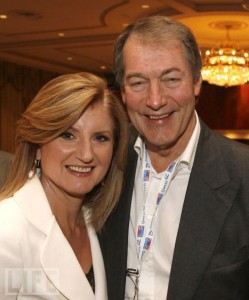 Alison: And do you see yourself doing this until …your last day on earth?
Alison: And do you see yourself doing this until …your last day on earth?
CR: It’s not an idea that I find abhorrent.
Alison: Do you see yourself ever retiring?
CR: No I don’t. I mean, I have a great and glorious life.
Alison: And what makes it great and glorious, Charlie? What is it that feeds you?
CR: (pause) What makes it great and glorious is the fact that I get up every morning with a new adventure.
Alison: Yes…
CR: The adventure is fueled by interesting people. I get a chance to control my own destiny. I do something that is immediately either appreciated or not. I get feedback. And then I meet people like you. Different people, of different skills who you’d never necessarily know or understood that would come on your scope.
Alison: And you enjoy that stimulation?
CR: Yes
Alison: Great. Well, Charlie Rose, I really appreciate your taking the time for Fresh Dialogues. It’s been a pleasure.
CR: Thank you
To listen to the Fresh Dialogues interview with Charlie Rose, click here
For another interview where Charlie Rose provides the answers, not the questions, check out Gillian Tett’s Lunch with Charlie Rose.
For more Fresh Dialogues interviews click here
